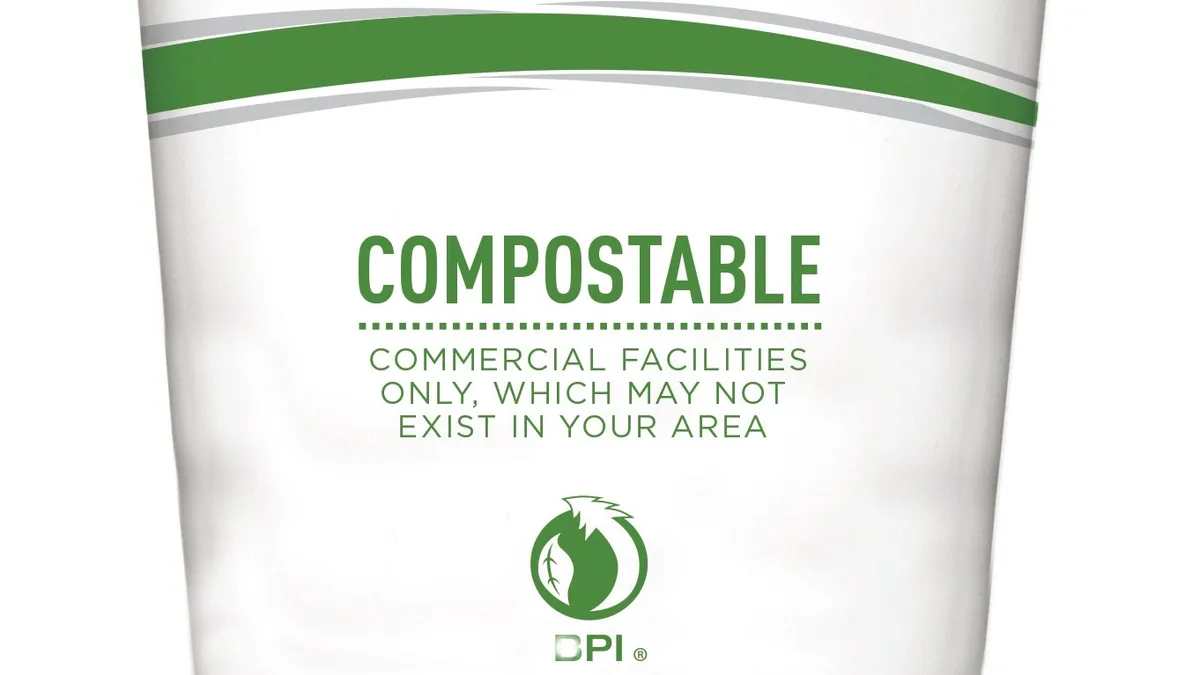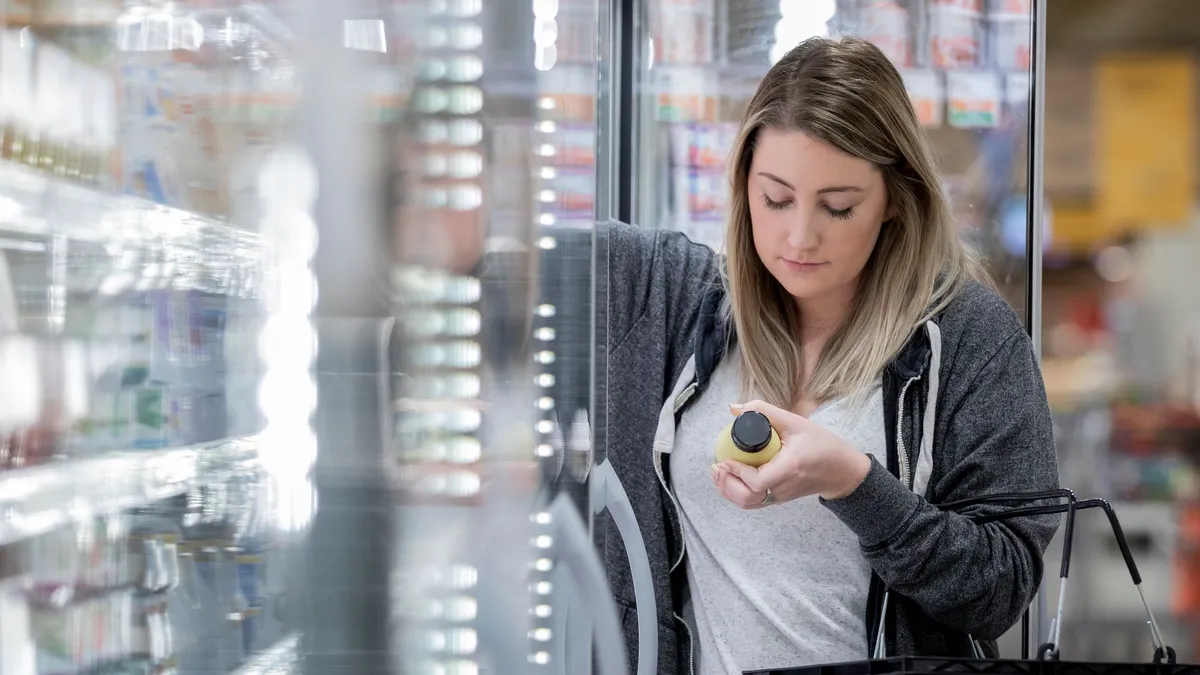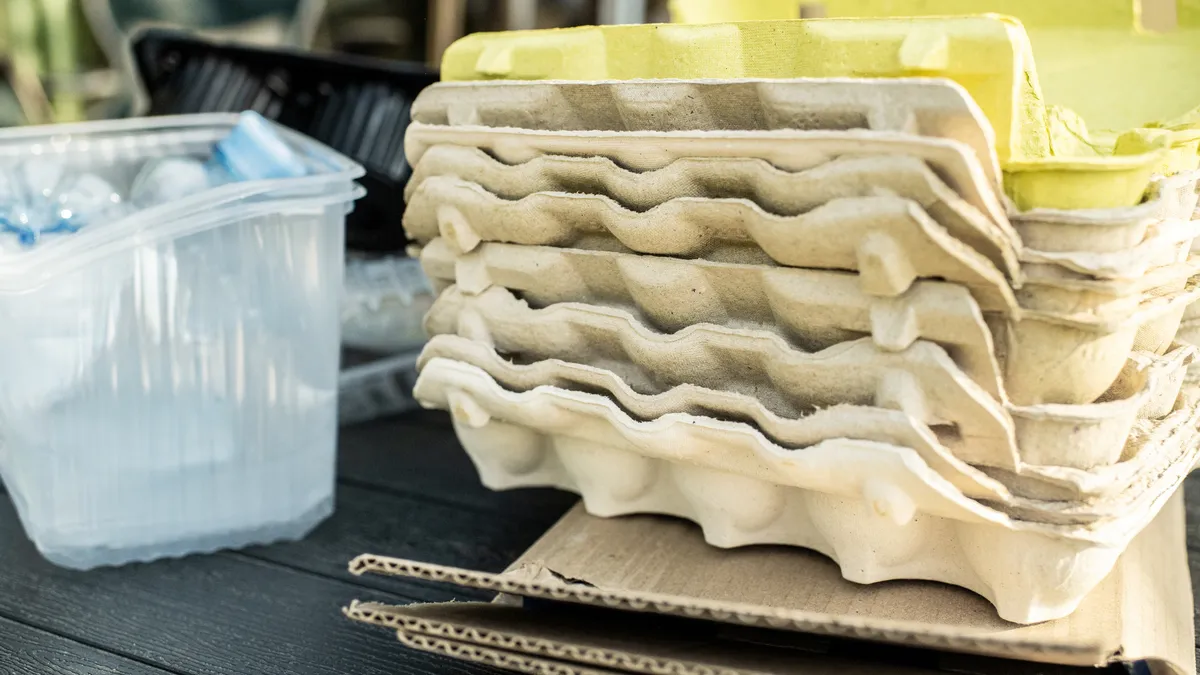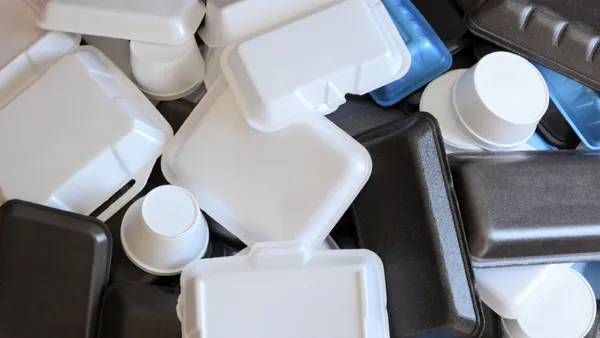Dive Brief:
- The US Composting Council, Biodegradable Products Institute and a task force of product and composting stakeholders on Tuesday released best practices for policymakers considering “truth in labeling” laws for compostable products.
- The guidance covers 10 principles for the dos and don’ts of compostable product design and labeling, including optimal colors and logos, prohibiting unsubstantiated claims, restricting degradation claims to certain environments and exempting products from including resin identification codes to avoid consumer confusion.
- The groups also intend to release a model compostable labeling bill this fall. Ultimately, they’re seeking “uniformity across states, or national legislation to standardize labeling.”
Dive Insight:
As compostable products like food service ware or packaging have grown more common, consumer confusion has led to contamination of recycling and organics streams alike and products designed to degrade still winding up in the trash.
Some states have taken action through “truth in labeling" laws. The organizations pointed to state labeling laws passed in California, Colorado, Maryland, Minnesota and Washington as examples of policies “that inspired and incorporate some of these principles.” Packaging and composting stakeholders often worry a patchwork of policies across the U.S. makes clarity and compliance a challenge for producers, processors and consumers.
The push by USCC and BPI also comes as the Federal Trade Commission considers updating the Green Guides, its non-binding guidance for environmental marketing claims. FTC and commenters have identified compostability claims as a key area in need of refining in the next update
Compostable products ought to be labeled with distinguishing tinting, striping and certification logos, according to USCC and BPI’s principles. The task force believes compostability should be defined by current third-party ASTM standard specifications, or if a product is 100% wood- or fiber-based.
Recommendations apply as much to compostable products as non-compostable products. The task force believes non-compostable items should be prohibited from using labeling identical to compostable products’ and misleading terminology. For instance, it proposes that non-compostable products not be allowed to be green, brown or beige.
The groups believe lab testing should be required for items defined as compostable, with field testing for disintegration “encouraged.”
The task force included representatives from Pactiv Evergreen, PepsiCo, Chick-fil-A, A1 Organics, Atlas Organics, the city of Seattle and the California Compost Coalition.
“Having representative voices at the table ensured that the principles reflect the real-world conditions and the business choices facing compost manufacturers,” said Frank Franciosi, executive director of the US Composting Council, in a statement. “We hope product manufacturers, brands and regulators will quickly and voluntarily adopt these principles.”
Rhodes Yepsen, executive director of BPI, said in the same announcement that as the number of compostable products are on the rise, the organizations aim to “guide policies to combat contamination from conventional packaging, and boost confidence in accepting certified compostable products” in order for compostable product makers and composters alike to be successful.













